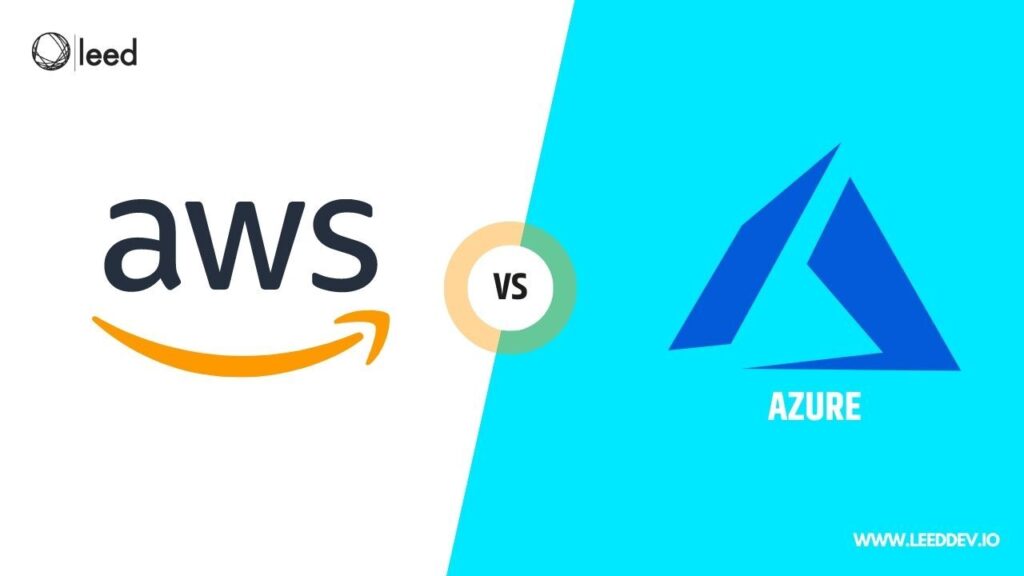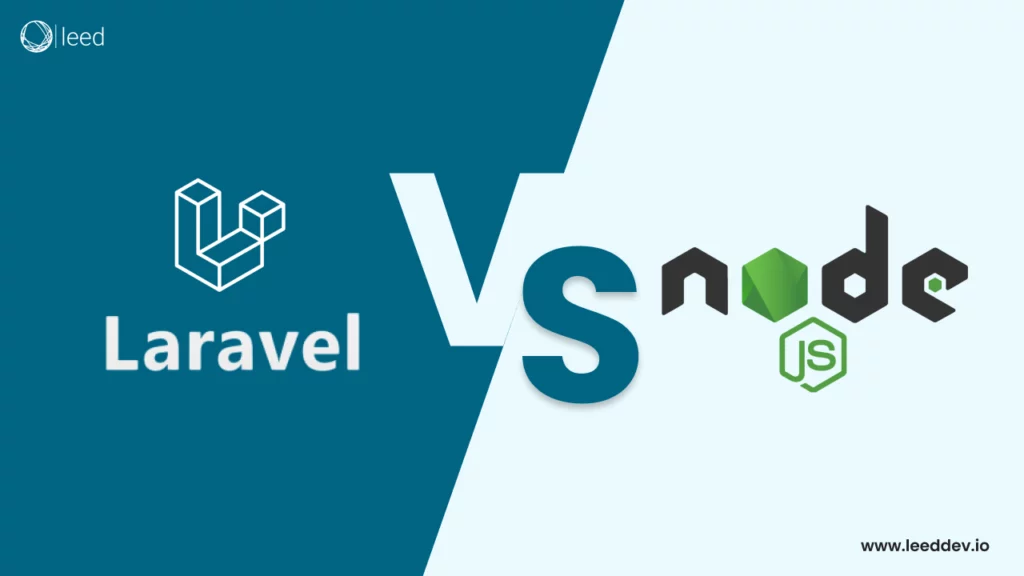In 2025 the cloud isn’t a nice to have thing it’s the core of modern digital strategy. Two names dominate the scene Amazon Web Services (AWS) and Microsoft Azure. But which one deserves your business?
With AWS holding the largest market share and Azure growing at lightning speed, businesses must weigh performance, integration, pricing and future readiness. Continue reading the blog to know which one suits your business best.
Read also: Types of Cloud Computing: How to Select Best Cloud Computing Model
What is AWS?
Amazon Web Services is the pioneer of cloud computing which was launched by Amazon in 2006. It offers an extensive suite of over 200 services including compute, storage, databases, machine learning & IoT.
Key Features of AWS
- Broadest range of services and global infrastructure
- Powerful compute instances, including ARM-based Graviton CPUs
- Mature AI/ML ecosystem with custom chips like Trainium
- Industry leading security and compliance
Advantages
- Massive scalability and reliability
- Deep ecosystem and strong third party support
- Preferred for cloud native high scale applications
- Global availability across 30+ regions
What is Azure?
Microsoft Azure launched in 2010 is a cloud computing platform designed for enterprise needs especially businesses already within the Microsoft ecosystem. This includes Windows Server, Office 365, Active Directory, etc.
Key Features of Azure
- Seamless integration with Microsoft products
- Strong hybrid capabilities (Azure Arc, Stack)
- Growing AI capabilities via OpenAI partnership
- Support for Windows & Linux, .NET, Java, Python, etc.
Advantages
- Easier adoption for Microsoft-heavy environments
- Competitive pricing, especially with existing Microsoft licenses
- Strong enterprise and government traction
- Growing at a faster pace than AWS in some segments
Comparison Between AWS vs Azure
For a better understanding let’s have a quick comparison
Market Leadership & Growth
- AWS still leads the global cloud infrastructure market with ~29–32% market share, but its growth is slowing up to 17% in Q1 2025 from a year ago
- Azure holds ~22–23%, growing faster (33% YoY in Azure cloud revenue in Q1 2025 vs Azure’s segment in Microsoft’s Intelligent Cloud group)
Core Strengths & Service Breadth
- AWS offers unmatched depth. It offers 200+ services like EC2, S3, DynamoDB, Lambda, Graviton ARM CPUs and broad container/ML tooling
- Azure integrates deeply with Microsoft ecosystems like Office 365, Windows Server, Dynamics, GitHub, Visual Studio making it a natural pick for enterprise environments
Compute, Storage & Pricing
- Compute: AWS leads in instance variety and architectures. Azure offers strong hybrid and Windows support. Both now support per‑second billing, but Azure still limits that to select container‑based VMs
- Storage: AWS S3 is feature‑rich; Azure Blob Storage is often more cost‑efficient, especially for smaller workloads. GCP generally lowest price for very large volumes .
- Pricing: Azure tends to be more cost‑effective for smaller workloads or enterprises already on Microsoft licensing. AWS scales better at high volume workloads. Pricing complexity remains a challenge across both platforms
AI, Hybrid Cloud & Edge
- Azure is accelerating via strategic AI investments (e.g. OpenAI integration), fueling its cloud growth and positioning in enterprise AI workloads
- AWS builds its own AI chips (Trainium, Inferentia) to improve performance and cost control on ML workloads
Both excel at hybrid and multi cloud strategies. Azure is known for hybrid tools like Azure Arc, AWS for integration via Outposts and edge services.
Security & Compliance
Both platforms deliver enterprise-grade offerings like IAM, encryption, regulatory compliance. Azure is popular with mid‑large enterprises due to trusting Microsoft’s track record. AWS leads in custom chip development (Graviton) and infrastructure resilience .
Community, Certification & Ecosystem
- AWS certifications (Cloud Architect, SysOps, DevOps) remain highly sought after especially for cloud-native engineers
- Azure certifications, backed by Microsoft and favored by enterprise IT teams, are growing rapidly thanks to Azure’s adoption in Fortune 500 companies (~55%)
Challenges & Considerations
- AWS: More complex pricing, steeper learning curve for Microsoft centric orgs.
- Azure: Documentation sometimes lagged behind AWS; some users cite difficulties in DevOps or scripting flexibility
AWS vs Azure: Feature by Feature Comparison
| Category | AWS | Azure |
| Market Share (2025) | ~29% (largest) | ~22% (growing faster) |
| Compute Options | EC2, Graviton, Fargate | Virtual Machines, Azure Functions |
| AI/ML | SageMaker, custom AI chips | Azure AI, OpenAI integration |
| Storage | S3, Glacier, EFS | Blob Storage, Disk Storage |
| Hybrid Cloud | AWS Outposts | Azure Arc, Azure Stack |
| Security | IAM, KMS, Shield, GuardDuty | Defender for Cloud, Sentinel |
| Dev Tools | CloudFormation, CodePipeline | Azure DevOps, GitHub Actions |
| Ease of Use | Powerful but complex | Streamlined for Microsoft users |
Which is Better?
Now the next question is which is better. Well It depends on your priorities:
- Choose AWS if you’re:
- A startup or tech company building cloud-native apps
- Needing global reach and massive scalability
- Focused on AI/ML infrastructure
- Avoiding vendor lock-in with Microsoft
- Choose Azure if you’re:
- An enterprise heavily invested in Microsoft products
- Building hybrid cloud or on premises integrations
- Seeking seamless Office 365, Teams or Dynamics integration
- Favoring Microsoft’s licensing benefits
Key Factors to Consider When Choosing
- Existing Stack: Is your team already using Microsoft tools or Linux based systems?
- Team Skills: Are your developers comfortable with .NET or AWS tools?
- Use Case: Either you need AI, global reach, hybrid cloud or something else?
- Compliance Needs: AWS & Azure both support regulations like GDPR, HIPAA but specifics may vary
- Pricing Models: Azure often provides better deals for enterprises. AWS may scale more efficiently at high volume
- Long Term Vision: Where is your business heading in 3 – 5 years? Choose a cloud that will scale with you
Final Takeaway
In the AWS vs Azure showdown, there’s no one size fits all winner.
- AWS is the go-to for startups, developers, and cloud-native apps.
- Azure is the natural fit for enterprises and Microsoft-centered environments.
The smartest strategy? Don’t just choose a provider choose a platform that matches your goals, tech stack, and team’s strengths.
FAQs
Is AWS cheaper than Azure?
It depends on the workload. Azure may be more cost-effective for enterprises already using Microsoft licenses, while AWS can be more efficient for large-scale cloud-native workloads.
Can I switch between AWS and Azure later?
Yes, but it’s not always simple. Migrating workloads across platforms can involve costs, compatibility issues, and downtime. Multi-cloud strategies can help reduce lock-in.
Which platform is better for AI and machine learning?
Both are strong: AWS has custom AI chips and SageMaker; Azure benefits from its OpenAI integration and is rapidly expanding its enterprise AI offerings.
Which is better for hybrid cloud solutions?
Azure has a slight edge with tools like Azure Arc and Azure Stack. AWS also supports hybrid setups via Outposts and Local Zones.
Are AWS and Azure equally secure?
Yes, both provide robust security features, including encryption, identity management, and compliance with major global standards like GDPR and HIPAA.
Which cloud platform is more beginner-friendly?
Azure may be easier for teams already familiar with Microsoft tools, while AWS can be more complex but offers broader flexibility and service depth.




